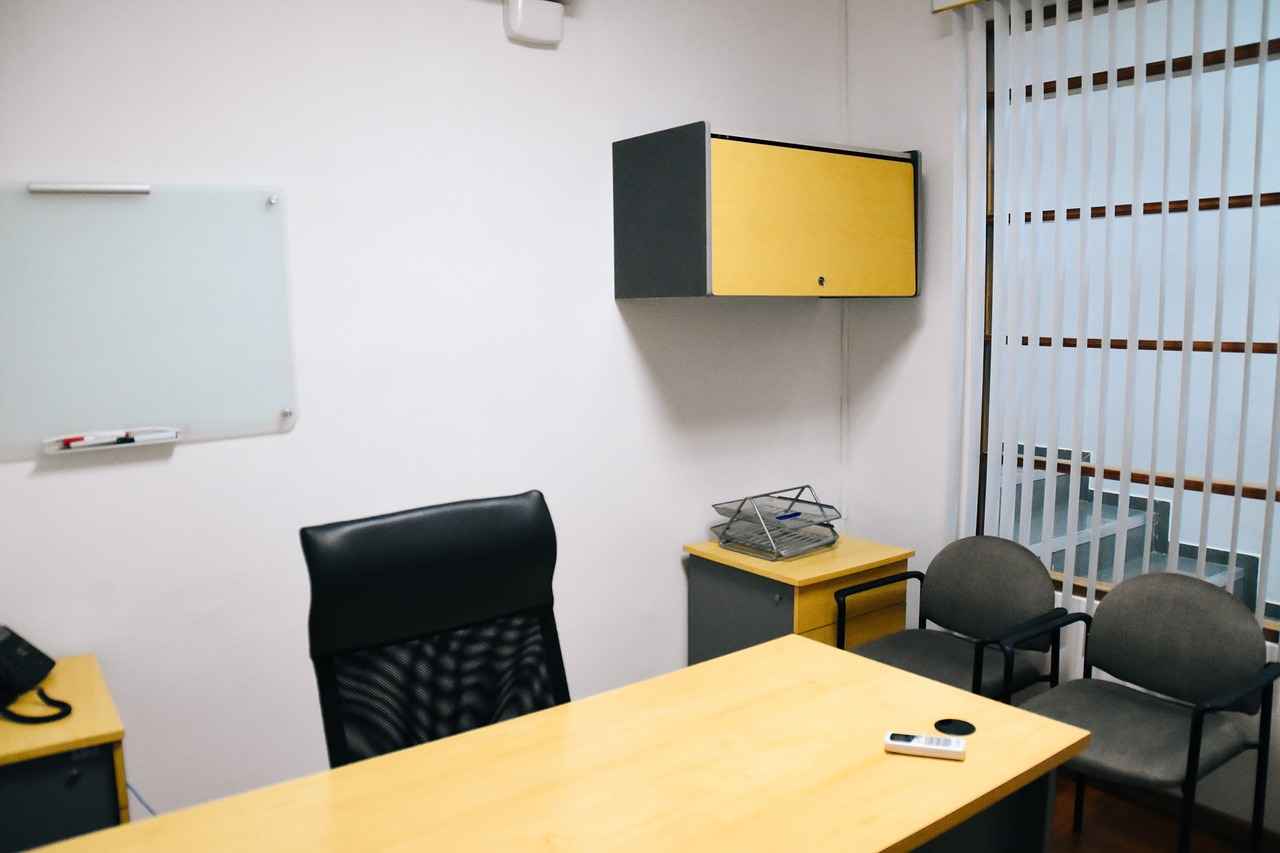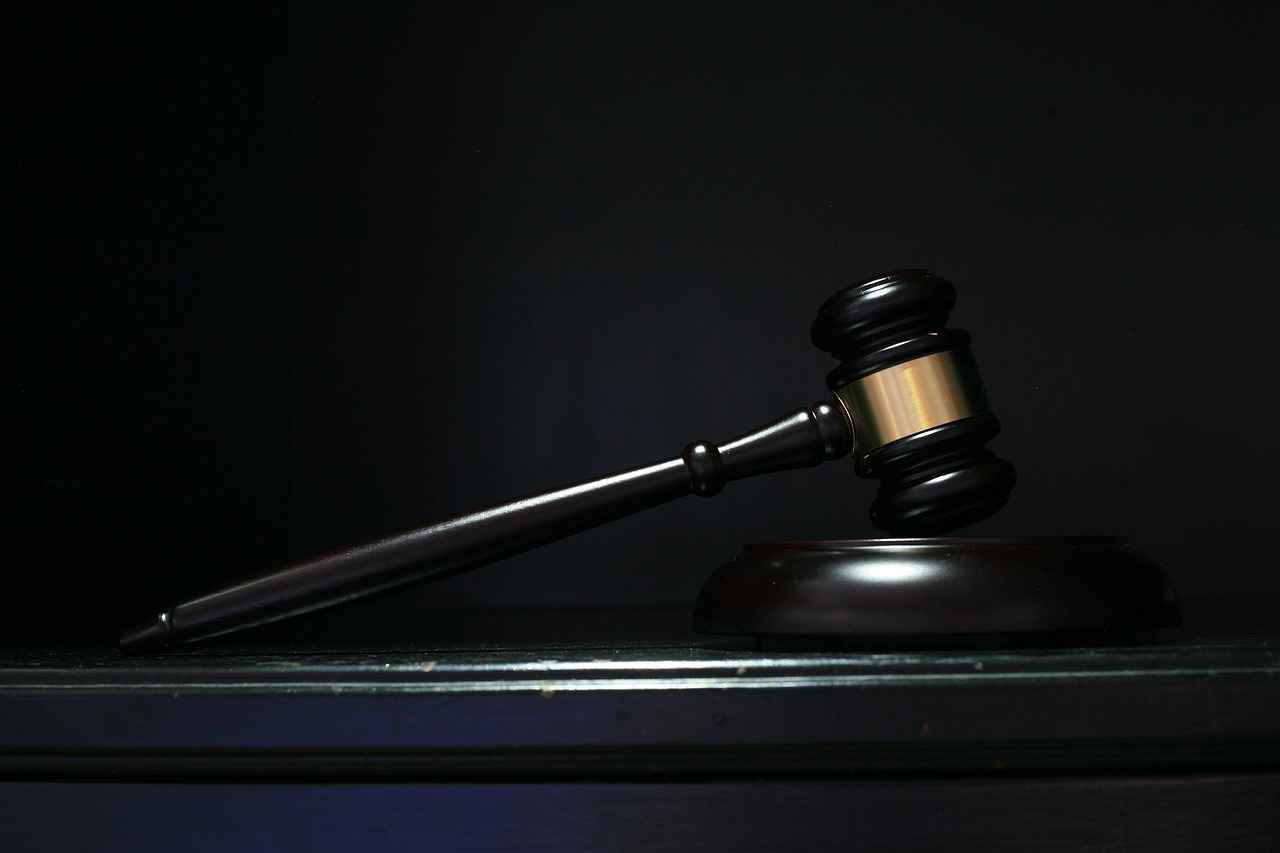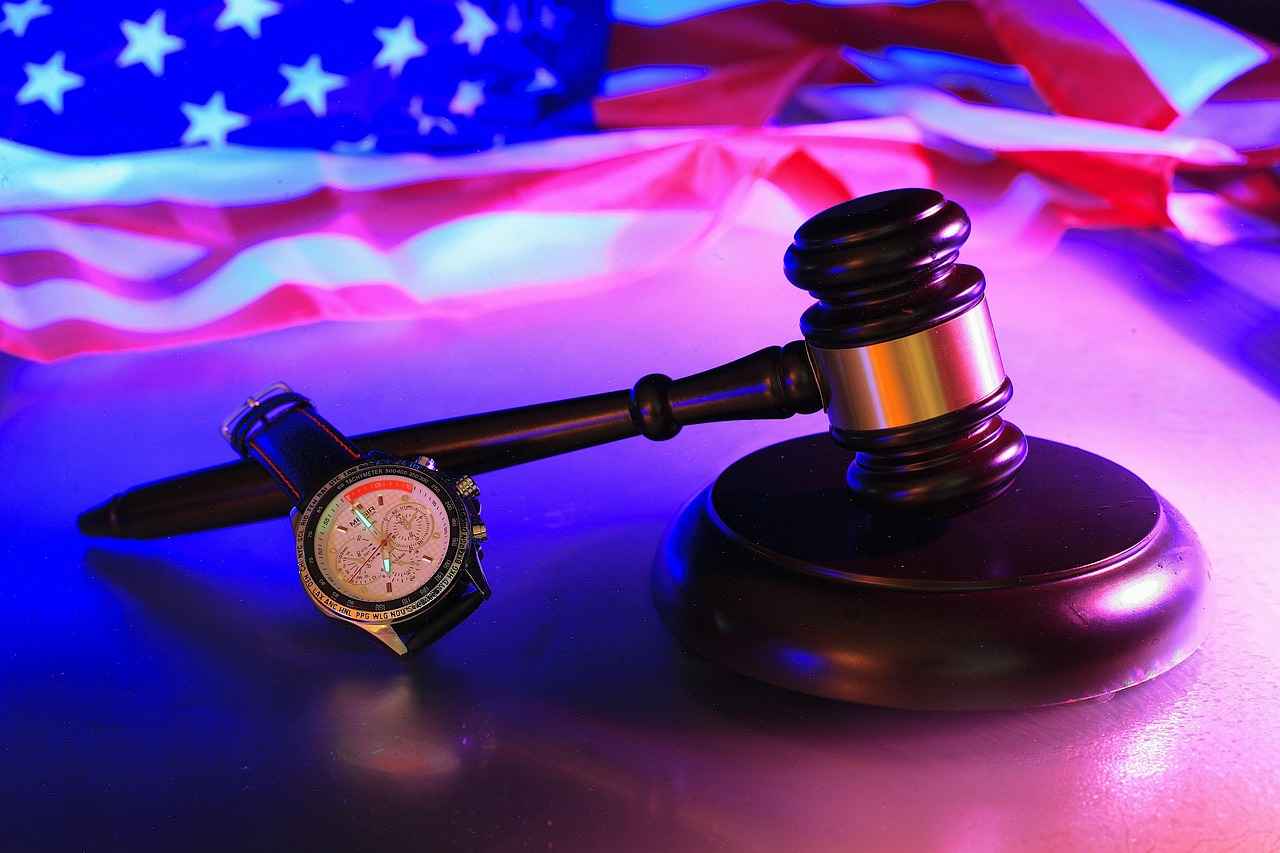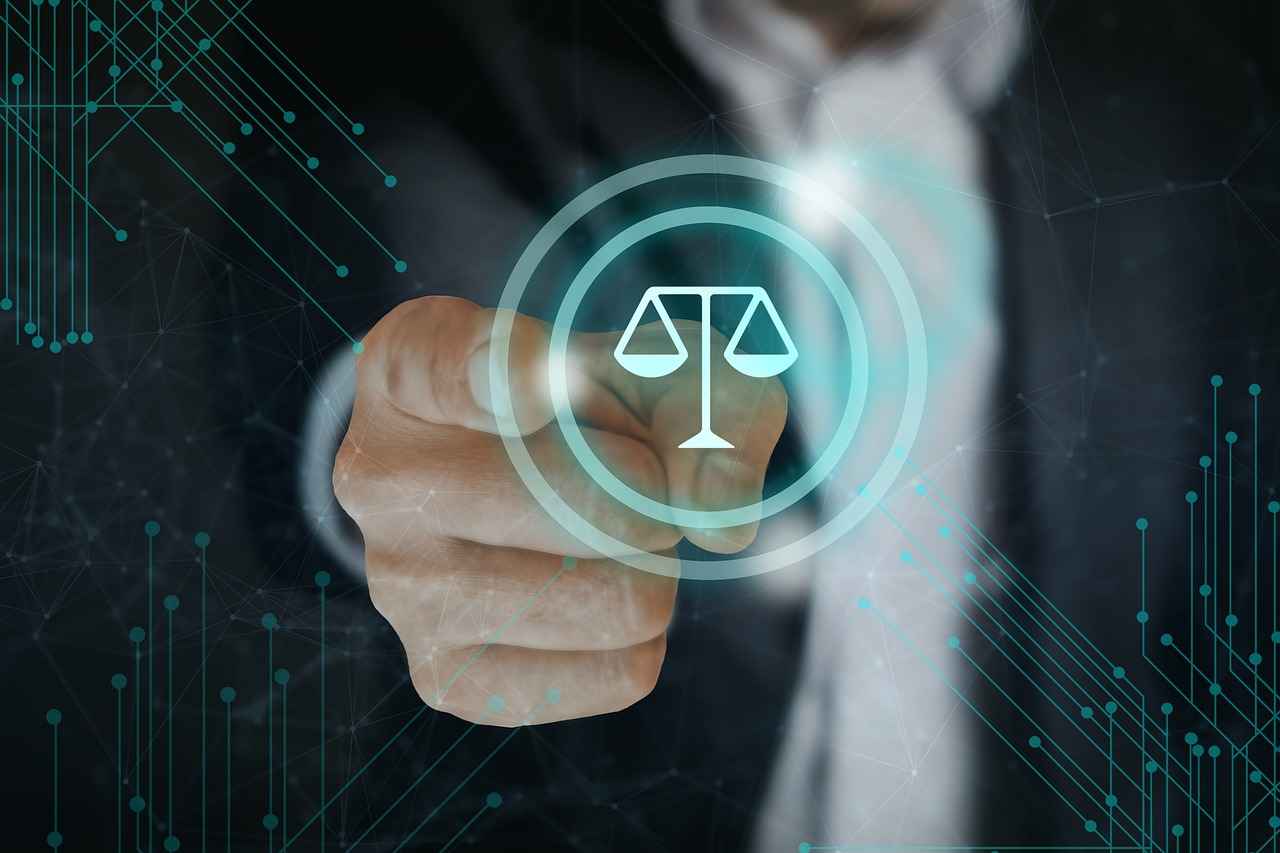This article explores various legal case types prevalent in the U.S. and offers expert guidance on identifying qualified lawyers in Milwaukee, Wisconsin, for each case type.
Understanding Personal Injury Cases
Personal injury cases are among the most frequent legal disputes in the United States, often resulting from accidents or negligence. These cases can encompass a wide array of incidents, including car accidents, slip and fall accidents, and workplace injuries. To secure a successful outcome, it is crucial to find an attorney who specializes in personal injury law. Look for lawyers with a proven track record of winning cases similar to yours, and consider their experience in negotiating settlements and litigating in court.
Medical Malpractice: Navigating Complexities
Medical malpractice claims arise when healthcare providers fail to meet the standard of care, resulting in harm to patients. These cases are complex and require a lawyer with specific expertise in medical malpractice. When selecting an attorney, check for credentials such as board certifications in medical malpractice law and past case results. Additionally, seek recommendations from trusted healthcare professionals or legal associations.
Breach of Contract: Legal Implications
Breach of contract cases occur when one party fails to uphold their contractual obligations. Legal representation is vital in these disputes to navigate the intricacies of contract law. When looking for a lawyer, prioritize those with experience in contract litigation and a strong understanding of the specific industry related to your case. Research their history of successful outcomes in similar disputes to ensure they can effectively advocate for your interests.
Property Disputes: Resolving Conflicts
Property disputes can arise between landlords and tenants, neighbors, or co-owners. These conflicts often involve issues such as lease agreements, property boundaries, and zoning laws. A knowledgeable attorney can simplify the resolution process. When selecting a lawyer, ensure they have experience in real estate law and a strong grasp of local regulations. Also, look for attorneys who have successfully mediated or litigated property disputes in the past.
Landlord-Tenant Disputes: Know Your Rights
Landlord-tenant disputes frequently require legal intervention to protect the rights of both parties. Issues may include eviction, lease violations, and security deposit disputes. Finding an attorney who specializes in housing law is essential. Seek out lawyers who are well-versed in tenant rights and have a history of representing clients in landlord-tenant cases. Additionally, check for positive reviews and testimonials from past clients to gauge their effectiveness.
Defamation: Protecting Your Reputation
Defamation cases, including libel and slander, involve false statements that harm an individual’s reputation. These cases can be challenging, and finding an attorney with expertise in media law is crucial for building a strong case. Look for lawyers who have successfully handled defamation claims and understand the nuances of free speech laws. Consider their experience in dealing with media outlets and their ability to negotiate settlements effectively.
Employment Disputes: Navigating Workplace Issues
Employment disputes can encompass a wide range of issues, from wrongful termination to harassment claims. A skilled employment attorney can provide guidance on your rights and options. When searching for a lawyer, prioritize those with a strong background in employment law and a history of advocating for employees. Look for attorneys who are members of reputable legal organizations and have received positive feedback from former clients.
Product Liability: Holding Manufacturers Accountable
Product liability cases arise when consumers are injured by defective products. These claims can involve complex legal principles and require an attorney experienced in this area. When selecting a lawyer, consider their track record in product liability cases and their ability to navigate the intricacies of consumer protection laws. Seek attorneys who have successfully represented clients against large corporations and have a deep understanding of the relevant regulations.
Wrongful Death: Seeking Justice
Wrongful death claims necessitate sensitive handling and legal expertise. Families seeking justice and compensation for their loss should look for attorneys with experience in wrongful death cases. It is important to choose a lawyer who demonstrates compassion and understanding while also possessing the necessary skills to advocate effectively on behalf of the deceased’s family. Check their history of successful wrongful death claims and their familiarity with state laws governing these cases.
Class Action Lawsuits: Collective Legal Action
Class action lawsuits allow groups of individuals to sue for similar grievances, often against large corporations. Finding a law firm experienced in class actions can enhance your chances of success. When selecting an attorney, look for those who have previously managed class action suits and have a solid understanding of the legal processes involved. Research their past successes and client testimonials to ensure they are well-equipped to handle your case.
Criminal Offenses: Understanding Your Rights
Criminal offenses, including theft and drug charges, require immediate legal representation. Knowing how to find a criminal defense attorney is vital for your case. Look for lawyers with a strong background in criminal law and a history of achieving favorable outcomes for their clients. Check their credentials, including any specialized training in criminal defense, and seek recommendations from trusted sources.
Family Law: Navigating Divorce and Custody
Family law encompasses various matters, including divorce, child custody, and support issues. A qualified family law attorney can guide you through these emotionally charged situations. When searching for a lawyer, prioritize those with experience in family law and a proven track record of successful outcomes in similar cases. Look for attorneys who demonstrate empathy and a commitment to protecting your family’s best interests.
Bankruptcy: Finding Financial Relief
Bankruptcy cases require specialized knowledge to navigate the complexities of financial relief options. Identifying a bankruptcy attorney who understands the nuances of bankruptcy law is essential. Seek lawyers with a strong history of helping clients regain financial stability and who can provide personalized guidance throughout the process. Research their qualifications and client reviews to ensure they are well-suited to handle your bankruptcy case.

Understanding Personal Injury Cases
Personal injury cases represent a significant portion of legal disputes in the United States, often stemming from accidents or negligence. These cases can involve various incidents, including car accidents, slip and falls, and workplace injuries, among others. Understanding the nuances of personal injury law is essential for anyone considering legal action.
When pursuing a personal injury claim, the first step is to find a qualified attorney who specializes in this area. Here are some key points to consider:
- Experience: Look for attorneys with a proven track record in personal injury cases. Check their history of settlements and verdicts to gauge their effectiveness.
- Specialization: Personal injury law can be complex, covering various subcategories such as medical malpractice, product liability, and wrongful death. Ensure the attorney has specific expertise related to your case.
- Reputation: Research online reviews and testimonials from previous clients. A reputable attorney will have positive feedback and a solid standing in the legal community.
- Communication: A good attorney should communicate clearly and promptly. They should be willing to explain the legal process and keep you informed about your case’s progress.
- Fee Structure: Most personal injury attorneys work on a contingency fee basis, meaning they only get paid if you win your case. Understand their fee structure and any additional costs that may arise.
To find the right attorney, consider using online legal directories such as Avvo, FindLaw, or Martindale-Hubbell. These platforms allow you to filter attorneys by location and practice area, making it easier to find someone suited to your needs.
Additionally, personal referrals can be invaluable. Speak to friends, family, or colleagues who have gone through similar experiences. They can provide insights and recommendations based on their own legal journeys.
Finally, when meeting with potential attorneys, prepare a list of questions to assess their qualifications and approach. Ask about their experience with cases similar to yours, their strategy for handling your case, and their expected timeline for resolution. This can help you make an informed decision and select an attorney who aligns with your goals.

Medical Malpractice: Navigating Complexities
Medical malpractice is a critical area of law that addresses the negligence of healthcare providers, which can result in severe consequences for patients. This complex field involves various aspects, including misdiagnosis, surgical errors, and improper treatment. Understanding how to navigate these complexities is essential for victims seeking justice and compensation.
What Constitutes Medical Malpractice?
Medical malpractice occurs when a healthcare professional fails to provide the standard of care that a reasonably competent provider would offer under similar circumstances. This negligence can manifest in numerous ways, such as:
- Misdiagnosis: Failing to correctly diagnose a condition can lead to inappropriate treatment and worsening health.
- Surgical Errors: Mistakes made during surgery, such as operating on the wrong site or leaving instruments inside the patient.
- Medication Errors: Incorrect prescriptions or dosages can have life-threatening consequences.
- Failure to Obtain Informed Consent: Patients must be informed of risks before undergoing treatments or procedures.
Finding the Right Attorney for Your Medical Malpractice Case
Choosing an attorney with experience in medical malpractice cases is crucial for the success of your claim. Here are some steps to consider:
- Research Specialization: Look for attorneys who specialize in medical malpractice law. Their expertise will be invaluable in navigating the complexities of your case.
- Check Credentials: Verify the attorney’s education, licenses, and any additional certifications in medical malpractice or personal injury law.
- Review Experience: Inquire about their experience with similar cases and their success rate in obtaining settlements or verdicts for their clients.
- Seek Referrals: Ask for recommendations from friends, family, or healthcare professionals who may have experience with legal matters in this field.
- Consult Initial Meetings: Many attorneys offer free consultations. Use this opportunity to assess their communication style, empathy, and understanding of your case.
Red Flags to Avoid When Hiring a Medical Malpractice Attorney
While searching for the right attorney, be aware of potential red flags that may indicate a lack of competence or integrity:
- Lack of Experience: Avoid attorneys who do not have a proven track record in medical malpractice cases.
- High Pressure Tactics: Be cautious of attorneys who pressure you to sign contracts or make quick decisions.
- Poor Communication: If an attorney is unresponsive during initial consultations, they may not prioritize your case.
- Unclear Fee Structures: Ensure that the attorney provides a clear explanation of their fees and payment structures to avoid unexpected costs.
Utilizing Online Resources for Finding Attorneys
In today’s digital age, various online platforms can assist you in finding qualified medical malpractice attorneys. Websites like Avvo, Martindale-Hubbell, and FindLaw offer directories of lawyers, along with reviews and ratings to help you make an informed decision. Additionally, state bar association websites can provide information on licensed attorneys in your area.
The Importance of a Strong Support System
Medical malpractice cases can be emotionally draining. Therefore, it is essential to have a strong support system, including friends, family, and mental health professionals, to help you navigate this challenging time. An experienced attorney will not only provide legal guidance but also support you through the complexities of your case.
In summary, navigating the complexities of medical malpractice requires a thorough understanding of the legal landscape and the ability to find the right attorney. By following the steps outlined above and being vigilant about potential red flags, you can significantly enhance your chances of a successful outcome in your medical malpractice claim.

Breach of Contract: Legal Implications
Breach of contract cases play a significant role in the legal landscape, particularly in business transactions and personal agreements. A breach occurs when one party fails to meet their obligations as outlined in a legally binding agreement. This can manifest in various forms, such as failing to deliver goods, not paying for services rendered, or not adhering to specified timelines. Understanding the intricacies of contract law is essential for anyone involved in such disputes.
Why You Need a Qualified Attorney
Engaging a qualified attorney with expertise in contract law is crucial for navigating the complexities of breach of contract cases. An experienced lawyer can assess the specifics of your case, advise you on the best course of action, and represent your interests effectively in negotiations or court. They can also help clarify the terms of the contract and determine whether a breach has indeed occurred.
Finding the Right Legal Representation
When searching for an attorney in metropolitan areas like New York City or Los Angeles, consider the following steps:
- Research Online: Utilize legal directories and review platforms such as Avvo or Martindale-Hubbell to find attorneys specializing in contract law.
- Check Credentials: Look for lawyers with relevant experience, bar association membership, and positive client reviews.
- Consultations: Schedule initial consultations to discuss your case and gauge the attorney’s approach and understanding of your situation.
What to Look For in a Contract Lawyer
When evaluating potential attorneys, keep an eye out for:
- Experience: Look for attorneys with a proven track record in handling breach of contract cases similar to yours.
- Communication Skills: Choose a lawyer who communicates clearly and keeps you informed throughout the process.
- Fee Structure: Understand their billing practices, whether they charge hourly rates, flat fees, or contingency fees.
Red Flags to Avoid
Be cautious of the following warning signs when selecting a lawyer:
- Lack of Transparency: If an attorney is unwilling to discuss their fees or provide a clear outline of their services, consider looking elsewhere.
- Poor Communication: An attorney who fails to respond promptly to your inquiries may not prioritize your case.
- Negative Reviews: Check for consistent negative feedback from past clients regarding their experience with the attorney.
In conclusion, understanding the legal implications of breach of contract cases and the importance of finding a qualified attorney can significantly impact the outcome of your situation. By following the steps outlined above, you can ensure that you select a legal professional who is well-equipped to handle your case effectively.

Property Disputes: Resolving Conflicts
Property disputes are a common source of conflict that can arise between landlords, tenants, and neighbors. These conflicts can stem from various issues, including lease agreements, property boundaries, maintenance responsibilities, and noise disturbances. Resolving these disputes effectively requires a clear understanding of the law and the rights of each party involved. In this section, we will explore how to find a knowledgeable attorney who can help simplify the resolution process.
When searching for a qualified attorney to handle property disputes, consider the following steps:
- Identify Your Specific Needs: Determine if your dispute involves a landlord-tenant issue, a boundary dispute with a neighbor, or another property-related matter. Understanding the specifics will help you narrow down your search for an attorney who specializes in that area.
- Research Local Attorneys: Use online legal directories such as Avvo or FindLaw to find attorneys in your area who specialize in property law. Look for those with positive reviews and a strong track record in handling similar cases.
- Check Credentials: Ensure that the attorney you consider is licensed to practice in your state and has experience in property disputes. Look for memberships in professional organizations, such as the American Bar Association or local bar associations, which can indicate a commitment to ongoing education and ethical practices.
- Schedule Consultations: Many attorneys offer free initial consultations. Use this opportunity to discuss your case, ask about their experience with similar disputes, and gauge their communication style. A good attorney should be able to explain the legal process clearly and provide you with a realistic assessment of your case.
- Discuss Fees: Understand the attorney’s fee structure before hiring them. Some may charge hourly rates, while others might work on a contingency basis, especially in cases where damages are sought. Make sure to clarify all costs involved to avoid surprises later on.
In addition to these steps, it’s essential to be aware of potential red flags when hiring an attorney:
- Lack of Experience: Be cautious of attorneys who do not have a proven track record in property disputes. Experience can make a significant difference in the outcome of your case.
- Poor Communication: If an attorney is difficult to reach or does not respond promptly to your inquiries during the initial consultation, it may be an indication of how they will handle your case.
- Unclear Fee Structures: If an attorney cannot provide a clear explanation of their fees or is evasive about costs, it may be best to look elsewhere.
Ultimately, finding the right attorney for property disputes requires diligence and careful consideration. By following these guidelines, you can navigate the legal landscape more effectively and work towards a resolution that protects your rights and interests.

Landlord-Tenant Disputes: Know Your Rights
Landlord-tenant disputes are a common occurrence in the United States, often requiring legal intervention to ensure that both parties’ rights are respected. These disputes can stem from various issues, including non-payment of rent, property maintenance, and lease violations. Understanding your rights as a tenant or landlord is crucial in navigating these conflicts effectively.
To begin with, it’s essential to familiarize yourself with the specific housing laws in your state, as they can vary significantly. Most states have established landlord-tenant laws that outline the responsibilities and rights of both parties. For instance, landlords are typically required to maintain the property in a habitable condition, while tenants must pay rent on time and adhere to the lease terms.
When disputes arise, the first step is often to communicate directly with the other party. Open dialogue can sometimes resolve misunderstandings without the need for legal action. However, if the situation escalates, it may be time to seek legal assistance. Here are some proven methods for finding the right attorney:
- Research Online: Use legal directories such as Avvo or FindLaw to find attorneys specializing in landlord-tenant law in your area.
- Seek Recommendations: Ask friends, family, or colleagues for referrals. Personal experiences can lead you to trustworthy attorneys.
- Check Credentials: Look for attorneys with specific experience in housing law. Check their education, years of practice, and any relevant certifications.
- Read Reviews: Online reviews and testimonials can provide insights into an attorney’s reputation and effectiveness.
- Consult Local Bar Associations: Many local bar associations offer referral services that can connect you with qualified attorneys.
When interviewing potential attorneys, ask about their experience with landlord-tenant disputes. Inquire about their success rate in similar cases and their approach to resolving conflicts. A good attorney will be transparent about their fees and provide a clear outline of what to expect throughout the legal process.
It’s also important to be aware of red flags when hiring a lawyer. Avoid attorneys who:
- Promise guaranteed outcomes.
- Have a history of disciplinary actions or complaints.
- Are reluctant to provide references or case studies.
- Do not communicate clearly about fees and processes.
In the event that legal action is necessary, your attorney can help you file complaints, negotiate settlements, or represent you in court. Remember that documentation is key; keep records of all communications, payments, and any issues that arise during your tenancy.
Ultimately, knowing your rights and having the right legal support can significantly impact the outcome of landlord-tenant disputes. By taking proactive steps to find a qualified attorney, you can protect your interests and navigate the complexities of housing law with confidence.

Defamation: Protecting Your Reputation
Defamation is a serious legal issue that can have lasting impacts on an individual’s reputation and livelihood. It encompasses two main forms: libel, which refers to written defamation, and slander, which pertains to spoken statements. Both can lead to significant emotional distress and financial loss for the victim. Therefore, understanding how to navigate defamation cases is crucial for anyone who feels their reputation has been unjustly harmed.
Finding the right attorney is essential in these complex cases. A lawyer with expertise in media law will not only understand the nuances of defamation but also be equipped to build a strong case on your behalf. Here are some key steps to consider when searching for a qualified defamation attorney:
- Research Specialization: Look for attorneys who specialize in defamation and media law. Their experience in similar cases will provide them with the knowledge necessary to effectively represent your interests.
- Check Credentials: Verify the lawyer’s credentials, including their education, years of practice, and any relevant certifications. Membership in professional organizations, such as the American Bar Association, can also indicate a commitment to staying updated on legal trends.
- Read Reviews: Online reviews and testimonials can offer insights into a lawyer’s reputation and success rate. Websites like Avvo and Martindale-Hubbell provide ratings and client feedback that can help you make an informed decision.
- Consultation: Schedule initial consultations with potential attorneys. This meeting allows you to gauge their understanding of your case and their approach to handling it. Pay attention to how well they communicate and whether they seem genuinely interested in your situation.
- Discuss Fees: Understanding the attorney’s fee structure is vital. Some may charge hourly rates, while others might work on a contingency basis, meaning they only get paid if you win your case. Make sure to clarify these details upfront.
- Evaluate Compatibility: A good attorney-client relationship is built on trust and mutual respect. Choose someone you feel comfortable with and who understands your goals.
In defamation cases, the burden of proof lies with the plaintiff, meaning you must demonstrate that the statements made were false, damaging, and made with a certain level of fault. This is where the expertise of your attorney becomes invaluable. They can help gather evidence, such as witness statements and expert testimonies, to support your claims.
Additionally, it’s essential to be aware of the potential defenses an accused party may use, such as truth, opinion, or privilege. A knowledgeable attorney will prepare you for these defenses and craft a strategy to counter them effectively.
Overall, protecting your reputation through a defamation lawsuit is a complex process that requires careful navigation. By taking the time to find a qualified attorney, you can enhance your chances of achieving a favorable outcome. Remember, your reputation is invaluable, and having the right legal support can make all the difference in your pursuit of justice.

Employment Disputes: Navigating Workplace Issues
Employment disputes are a significant concern in today’s workplace, encompassing a wide array of issues such as wrongful termination, harassment, discrimination, and wage disputes. Understanding your rights and the various legal avenues available is crucial for both employees and employers.
When faced with an employment dispute, it is essential to consult with a skilled employment attorney who can provide tailored guidance based on your specific situation. These legal professionals specialize in employment law and can help you navigate the complexities of your case.
One of the most common types of employment disputes is wrongful termination. This occurs when an employee is fired for reasons that violate federal or state laws, such as discrimination based on race, gender, or age. If you believe you have been wrongfully terminated, it is crucial to gather evidence, such as emails, performance reviews, and witness statements, to support your claim. An employment attorney can help you assess the strength of your case and guide you through the process of filing a complaint.
Harassment in the workplace, whether sexual or based on other forms of discrimination, can create a toxic environment for employees. If you are facing harassment, document every incident, including dates, times, and any witnesses. An attorney can assist you in understanding your rights under laws such as Title VII of the Civil Rights Act, which protects employees from workplace harassment.
In addition to wrongful termination and harassment, disputes over wages and benefits are also common. Issues such as unpaid overtime, misclassification as an independent contractor, or denial of benefits can lead to legal action. An experienced employment lawyer can help you determine the best course of action to recover lost wages and hold your employer accountable.
When searching for a qualified employment attorney, consider the following tips:
- Research Credentials: Look for attorneys with a specialization in employment law and a proven track record of handling similar cases.
- Check Reviews: Online reviews and testimonials can provide insight into an attorney’s reputation and success rate.
- Consultation: Many attorneys offer free initial consultations. Use this opportunity to assess their expertise and compatibility with your needs.
- Communication: Choose an attorney who communicates clearly and is responsive to your questions and concerns.
Be wary of red flags when hiring an employment attorney. These may include:
- Promises of guaranteed outcomes, as no attorney can assure success in legal matters.
- Lack of transparency regarding fees and costs associated with your case.
- Inadequate experience in employment law or a failure to provide references.
In conclusion, navigating employment disputes can be challenging, but with the right legal support, you can protect your rights and seek justice. Whether you are facing wrongful termination, harassment, or wage disputes, a skilled employment attorney can provide the necessary guidance and representation to help you achieve a favorable outcome.

Product Liability: Holding Manufacturers Accountable
Product liability cases are critical in ensuring that manufacturers and sellers are held accountable for the safety of their products. When a consumer is injured due to a defective product, it can lead to significant physical, emotional, and financial repercussions. Understanding the nuances of product liability law is essential for anyone who has suffered from such injuries.
In the United States, product liability cases generally fall under three categories: design defects, manufacturing defects, and failure to warn. Each category carries its own complexities and legal standards. For instance, a design defect occurs when the product is inherently dangerous due to its design, while a manufacturing defect happens when the product is improperly made. Lastly, failure to warn pertains to situations where consumers are not adequately informed about the risks associated with using the product.
When pursuing a product liability claim, it is crucial to find an attorney who specializes in this area of law. Here are some practical steps to identify the right legal representation:
- Research and Referrals: Start by asking friends, family, or medical professionals for recommendations. Personal referrals can often lead to finding trustworthy attorneys.
- Online Directories: Utilize legal directories such as Avvo or FindLaw to search for attorneys who specialize in product liability. These platforms provide reviews, ratings, and detailed profiles.
- Consultation: Schedule consultations with potential attorneys. Many offer free initial consultations, allowing you to gauge their expertise and approach to your case.
- Check Credentials: Look for attorneys with a proven track record in product liability cases. Verify their education, experience, and any relevant certifications.
- Assess Communication: Effective communication is essential. Choose an attorney who listens to your concerns and explains complex legal concepts in a way you can understand.
- Review Case Results: Ask about their success rate in similar cases. An attorney’s history of winning settlements or verdicts can be a strong indicator of their capability.
In addition to these steps, it’s important to be aware of potential red flags when hiring a product liability attorney:
- Unclear Fee Structures: Be cautious of attorneys who are not transparent about their fees. A reputable attorney should clearly outline their billing practices upfront.
- Pressure Tactics: Avoid attorneys who pressure you into signing contracts quickly. A trustworthy attorney will give you the time to make an informed decision.
- Lack of Specialization: Ensure that the attorney specializes in product liability law. General practitioners may not have the necessary expertise to handle complex cases.
In major metropolitan areas like New York City, Los Angeles, and Chicago, the competition among attorneys can be fierce. However, this also means there are many qualified professionals available. Utilize local bar associations for referrals and consider attending legal workshops or seminars to meet potential attorneys.
In conclusion, product liability cases can be intricate and challenging. By conducting thorough research, seeking referrals, and being mindful of red flags, you can find a qualified attorney who will advocate for your rights and help you navigate the complexities of your case. Remember, holding manufacturers accountable is not just about seeking compensation; it’s about ensuring that safety standards are upheld for all consumers.

Wrongful Death: Seeking Justice
Experiencing the loss of a loved one due to another’s negligence is an incredibly painful ordeal. Wrongful death claims are legal actions brought by surviving family members against those responsible for the death. These cases require not only sensitive handling but also extensive legal expertise to navigate the complexities involved.
When pursuing a wrongful death claim, it is crucial to understand the legal framework surrounding these cases. Typically, wrongful death claims arise from incidents such as car accidents, medical malpractice, workplace accidents, or defective products. The primary goal is to seek justice for the deceased and provide financial compensation to the family for their loss, including expenses related to funeral costs, lost income, and emotional suffering.
Finding an experienced attorney who specializes in wrongful death cases is vital. Here are some practical steps to help you identify the right legal representation:
- Research Local Attorneys: Start by searching for attorneys in your area who have specific experience in wrongful death claims. Websites like Avvo, FindLaw, and Justia can provide valuable information on local lawyers, including their specialties, reviews, and ratings.
- Check Credentials: Look for attorneys with a strong track record in wrongful death cases. Ensure they are licensed to practice in your state and are members of relevant legal associations, such as the American Bar Association or state bar associations.
- Consultations: Many attorneys offer free consultations. Use this opportunity to discuss your case, ask about their experience, and evaluate their approach. Pay attention to how they communicate and whether they demonstrate genuine concern for your situation.
- Evaluate Past Cases: Inquire about the attorney’s past case outcomes. A good attorney will be able to provide examples of successful wrongful death claims they have handled, including the compensation awarded.
- Trust Your Instincts: It’s essential to feel comfortable with your attorney. Trust your instincts when assessing their demeanor and willingness to advocate for your family’s best interests.
As you navigate this challenging time, remember that wrongful death claims can be complex and time-sensitive. An experienced attorney will understand the nuances of the law and can guide you through the process, ensuring that you meet all necessary deadlines and requirements. They will also help gather essential evidence, including medical records, accident reports, and witness statements, to build a strong case on your behalf.
Moreover, an attorney can negotiate with insurance companies to secure a fair settlement or represent you in court if necessary. Their expertise will be invaluable in addressing any legal hurdles that may arise during the claims process.
In summary, seeking justice through a wrongful death claim is a difficult journey, but with the right legal representation, families can find the support they need to navigate this challenging time. By following the steps outlined above and choosing a qualified attorney, you can ensure that your family’s rights are protected and that you have the best chance of achieving the justice and compensation you deserve.

Class Action Lawsuits: Collective Legal Action
Class action lawsuits serve as a powerful tool for individuals who share similar grievances against a common defendant, often a corporation or large entity. These lawsuits allow a group of people to come together to file a single claim, which can be more efficient and cost-effective than pursuing individual lawsuits. This collective legal action not only amplifies the voices of those affected but also levels the playing field against powerful entities that might otherwise dismiss individual claims.
Finding a law firm experienced in class actions is essential to enhance your chances of success. Here are several practical steps to guide you in this process:
- Research Specialized Firms: Look for law firms that specialize in class action lawsuits. These firms often have a proven track record in managing complex litigation and understand the nuances of class action rules.
- Check Credentials: Verify the credentials of the attorneys involved. Look for lawyers who have experience in handling similar cases and have been recognized by legal associations for their expertise.
- Read Reviews and Testimonials: Online reviews and client testimonials can provide insights into a law firm’s reputation. Websites like Avvo and Martindale-Hubbell can be helpful in assessing an attorney’s track record.
- Consult Multiple Firms: Don’t hesitate to consult multiple law firms before making a decision. This will give you a better understanding of their approach, fees, and overall fit for your needs.
- Understand the Fee Structure: Class action lawyers typically work on a contingency fee basis, meaning they only get paid if you win. Ensure you understand the fee structure and any potential costs involved.
- Evaluate Communication: Effective communication is crucial in any legal matter. Choose a firm that keeps you informed and is responsive to your questions and concerns.
Additionally, it is important to be aware of potential red flags when selecting a law firm. Be cautious of firms that promise guaranteed outcomes, as legal cases can be unpredictable. Also, avoid firms that lack transparency regarding their fees or have poor communication practices.
Class action lawsuits can cover a wide range of issues, including consumer fraud, product liability, and employment discrimination. Therefore, it is crucial to select a firm that not only specializes in class actions but also has experience in the specific area relevant to your case.
In metropolitan areas like New York City, Los Angeles, and Chicago, the competition among law firms can be intense. Utilize local bar association resources and legal directories to identify reputable firms. Networking with others who have been involved in class actions can also provide valuable recommendations.
Ultimately, the key to a successful class action lawsuit is to engage with knowledgeable and trustworthy legal professionals who are dedicated to advocating for your rights and interests.

Criminal Offenses: Understanding Your Rights
When facing criminal offenses such as theft, drug charges, or even more severe allegations, it is essential to seek immediate legal representation. The complexities of the criminal justice system can overwhelm anyone without the right guidance, making it vital to understand how to find a qualified criminal defense attorney.
First, it is crucial to grasp the severity of the charges you may be facing. Criminal offenses can range from misdemeanors to felonies, each carrying different consequences. For example, a theft charge may lead to fines or jail time, while drug offenses can result in significant prison sentences and long-term repercussions on your life. Therefore, having an attorney who specializes in criminal law is not just beneficial; it is necessary for your defense.
To begin your search for a criminal defense attorney, consider the following steps:
- Research Local Attorneys: Start by searching online for criminal defense lawyers in your area. Websites like Avvo and FindLaw provide directories of lawyers, along with ratings and reviews from previous clients.
- Check Credentials: Look for attorneys who are licensed to practice in your state and have experience specifically in criminal law. The more cases they have handled similar to yours, the better.
- Seek Referrals: Ask friends, family, or colleagues if they can recommend a reputable attorney. Personal experiences can often lead you to trustworthy professionals.
- Consult Multiple Attorneys: Schedule initial consultations with several attorneys to discuss your case. This will give you a sense of their approach and whether you feel comfortable working with them.
During your consultations, pay attention to their communication style and how they explain legal concepts. A good attorney should be able to break down complex legal jargon into understandable terms. Additionally, inquire about their success rates and past case outcomes. This information can provide insight into their effectiveness in the courtroom.
Moreover, be wary of red flags during your search. If an attorney guarantees a specific outcome or seems more interested in your money than your case, it may be best to continue your search. A reputable lawyer will provide honest assessments and realistic expectations based on their legal expertise.
In major metropolitan areas like New York City, Los Angeles, and Chicago, the competition among attorneys is fierce. This means you have the opportunity to find highly qualified professionals who can represent you effectively. Use local bar association resources to find certified criminal defense attorneys in these cities. These associations often provide referral services that can connect you with well-reviewed attorneys.
Additionally, consider the attorney’s approach to your case. Some may focus on negotiation and plea deals, while others may be more inclined to take cases to trial. Depending on your situation, you should choose an attorney who aligns with your desired approach to handling your case.
In conclusion, navigating criminal charges requires immediate and informed action. By understanding your rights and knowing how to find a qualified criminal defense attorney, you can better position yourself for a favorable outcome. Remember, the right attorney can make all the difference in your case, so take the time to do thorough research and choose wisely.

Family Law: Navigating Divorce and Custody
Family Law is a vital area of legal practice that addresses a range of personal matters, including divorce, child custody, and support issues. These situations can be emotionally charged and challenging, making it essential to have a qualified family law attorney by your side. In this section, we will explore the various aspects of family law and offer guidance on how to find the best legal representation in your area.
When navigating the complexities of family law, it is important to understand the different components involved:
- Divorce: The process of legally dissolving a marriage can involve various issues such as asset division, alimony, and child custody arrangements.
- Child Custody: Determining the living arrangements and visitation rights for children post-divorce is often one of the most contentious issues.
- Child Support: Financial support for children is typically mandated by the court, and understanding the calculations involved is crucial.
- Spousal Support (Alimony): In some cases, one spouse may be required to provide financial support to the other after divorce.
- Adoption: This legal process allows individuals or couples to become the legal parents of a child, often requiring the expertise of a family law attorney.
- Paternity: Establishing legal fatherhood can be essential for child support and custody arrangements.
- Guardianship: In cases where parents cannot care for their children, legal guardianship may be necessary.
To find a qualified family law attorney, consider the following steps:
- Research: Start by searching online for family law attorneys in your area. Websites like Avvo and FindLaw offer directories of lawyers along with ratings and reviews.
- Check Credentials: Look for attorneys who specialize in family law and have experience handling cases similar to yours. Verify their education, certifications, and any specialties.
- Consultation: Schedule initial consultations with potential attorneys. This meeting can help you gauge their expertise, communication style, and approach to your case.
- Ask Questions: Prepare questions to ask during your consultation, such as their experience with custody cases, their approach to negotiations, and their fees.
- Trust Your Instincts: It’s important to feel comfortable with your attorney. Trust your instincts when deciding who to hire.
In addition to these steps, be aware of red flags when hiring a family law attorney:
- Lack of Communication: If an attorney is difficult to reach or does not communicate clearly, this could be a sign of potential issues down the line.
- Unclear Fees: Make sure to understand the fee structure upfront. Be cautious of attorneys who are vague about their charges.
- Negative Reviews: While every attorney may have a few negative reviews, a pattern of complaints may indicate deeper problems.
In summary, navigating family law matters requires careful consideration and the right legal representation. By conducting thorough research, checking credentials, and trusting your instincts, you can find a family law attorney who will guide you through these emotionally charged matters with expertise and compassion.

Bankruptcy: Finding Financial Relief
When facing financial difficulties, many individuals consider filing for bankruptcy as a way to seek relief from overwhelming debt. However, the process can be intricate and challenging without proper guidance. Bankruptcy cases require specialized knowledge, and understanding the nuances involved is crucial for anyone considering this route.
Identifying a qualified bankruptcy attorney can significantly ease the burden of navigating the complexities of financial relief options. Here are some essential factors to consider when seeking an attorney in this field:
- Experience and Specialization: Look for an attorney who specializes in bankruptcy law and has extensive experience handling cases similar to yours. This expertise is vital in ensuring that your case is managed effectively.
- Reputation and Reviews: Research potential attorneys through online reviews, testimonials, and ratings from previous clients. A good reputation often indicates a trustworthy and competent attorney.
- Consultation Availability: Many attorneys offer free initial consultations. Take advantage of this opportunity to discuss your situation and gauge their approach and expertise.
- Fees and Payment Structures: Understand the attorney’s fee structure upfront. Some attorneys may charge a flat fee, while others may work on a retainer or hourly basis. Ensure you are comfortable with the financial arrangement before proceeding.
- Communication Style: Choose an attorney who communicates clearly and promptly. You will want someone who is approachable and willing to answer your questions throughout the process.
In addition to these factors, utilizing reputable platforms and resources can aid in your search for a bankruptcy attorney. Websites like Avvo and FindLaw allow individuals to search for attorneys based on their specific needs and location. These platforms often provide valuable information about each attorney’s qualifications, areas of practice, and client reviews.
It’s also important to be aware of red flags when hiring a bankruptcy attorney. For instance, if an attorney guarantees a specific outcome or pressures you into making quick decisions, it may be a sign to look elsewhere. Additionally, be cautious of attorneys who do not provide clear information about their fees or who lack transparency regarding the process.
In major metropolitan areas like New York City, Los Angeles, and Chicago, the competition among attorneys can be fierce. Therefore, it is crucial to take your time in researching and interviewing potential candidates to find the best fit for your needs. Remember that your attorney will play a significant role in your financial future, so making an informed choice is essential.
In conclusion, while bankruptcy can offer a pathway to financial relief, navigating the legal landscape requires the expertise of a qualified attorney. By focusing on experience, reputation, communication, and utilizing available resources, you can find a trustworthy bankruptcy attorney who will guide you through this challenging process.
Frequently Asked Questions
- What should I look for when choosing a lawyer in Milwaukee?
When searching for a lawyer, consider their experience, area of specialization, and client reviews. It’s essential to find someone who understands your specific legal situation and has a proven track record in that field.
- How much does it cost to hire a lawyer?
Legal fees can vary widely based on the lawyer’s experience and the complexity of your case. Some lawyers charge hourly rates, while others may work on a contingency basis, meaning they only get paid if you win your case.
- Can I represent myself in a legal case?
Yes, you can represent yourself, but it’s often not advisable, especially for complex cases. Having a qualified attorney can significantly improve your chances of a favorable outcome.
- What is the difference between a civil and a criminal lawyer?
Civil lawyers handle disputes between individuals or organizations, such as personal injury or contract issues. Criminal lawyers, on the other hand, defend individuals accused of crimes. It’s crucial to choose the right type of lawyer for your legal needs.
- How long does it take to resolve a legal case?
The timeline for resolving a legal case can vary greatly depending on the type of case and the court’s schedule. Some cases may be resolved in a few months, while others could take years. Patience and understanding of the process are key.














